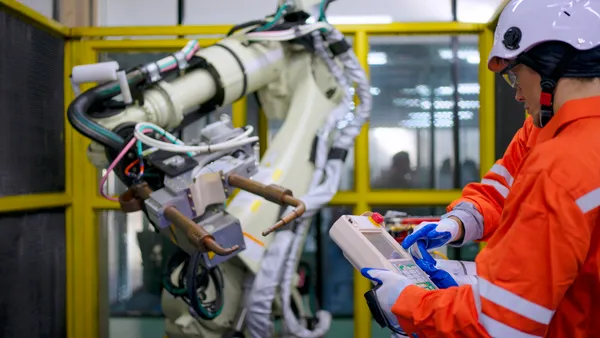Perceived empathy levels of CEOs from HR and employees dropped to their lowest levels since 2017, according to a May 17 report from Businessolver, an HR benefits technology and services company.
Compared to last year, fewer HR professionals view their CEO as empathetic — as well as their organization. Overall, there were double-digit declines in several empathy levels, with a 24-point gap between how HR leaders and CEOs view empathy in each other.
“Alarming. That is the word for this year’s data, especially as it pertains to HR’s empathy perceptions and mental health challenges,” Jon Shanahan, CEO and founder of Businessolver, said in a statement.
“Last year the cracks started to show. This year a great divide has emerged in more ways than one,” he added. “While we anticipated a decline in empathy due to factors like inflation and return-to-office policies, we did not foresee so many double-digit swings in the data, nor the severity of HR’s diminished perceptions.”
Businessolver surveyed more than 3,000 HR professionals, employees and CEOs across six industries to examine the behaviors and benefits that make a workplace empathetic, which was defined as “the ability to understand and experience the feelings of another.”
Since 2016, employee empathy perceptions have steadily declined, reaching an all-time low this year. However, HR professionals’ feelings about their organizations have dropped dramatically, falling 23 points this year.
In addition, 68% of HR professionals viewed their CEO as empathetic, marking a 16-point decline from 2022 and reaching the lowest levels ever reported. At the same time, 92% of CEOs viewed their HR professionals as empathetic, jumping 27 points from last year.
Mental health challenges have become more prevalent, according to the report. About 51% of employees and 61% of HR professionals reported that they experienced a mental health issue in the past year, which was up 9 points from 2022 for HR. About 61% of HR professionals said they’re aware of their company’s mental health benefits, which was down 11 points from last year.
Workplace flexibility could be key, the report found. Flexible working hours led the list of most empathetic benefits an employer can offer, followed by flexible working location. About 76% of remote workers viewed their organization as empathetic, as compared with 62% of nonremote workers.
In addition, 78% of employees viewed paid time off as a must-have benefit, as compared with 46% of CEOs. About 9 in 10 employees have asked for family-related benefits such as paid maternity and paternity leave and flexible work schedules and hours, yet less than half said they have these benefits.
“In the end, the gaps in perceptions that this year’s findings reveal should be a wake-up call for leaders to check their perceived realities against the workplace realities of their employees, as the data shows far more disconnect than alignment,” Shanahan said. “But leaders alone are not accountable for closing the empathy gap. Everyone has a responsibility to be stewards of empathy and employ ‘perspective taking’ to turn micro-empathy moments into macro-empathetic cultures.”
As questions about organizational and leader-related empathy arise, HR professionals may be concerned about employees feeling increasingly disconnected and disengaged this year. Opportunities for connection — with both peers and leaders — could help, sources told HR Dive.
On top of that, employees may also need help with accessing their company’s mental health benefits, according to a recent report. Some benefits go untapped, and improving communication around access could help ease rates of anxiety, depression and stress among employees.











